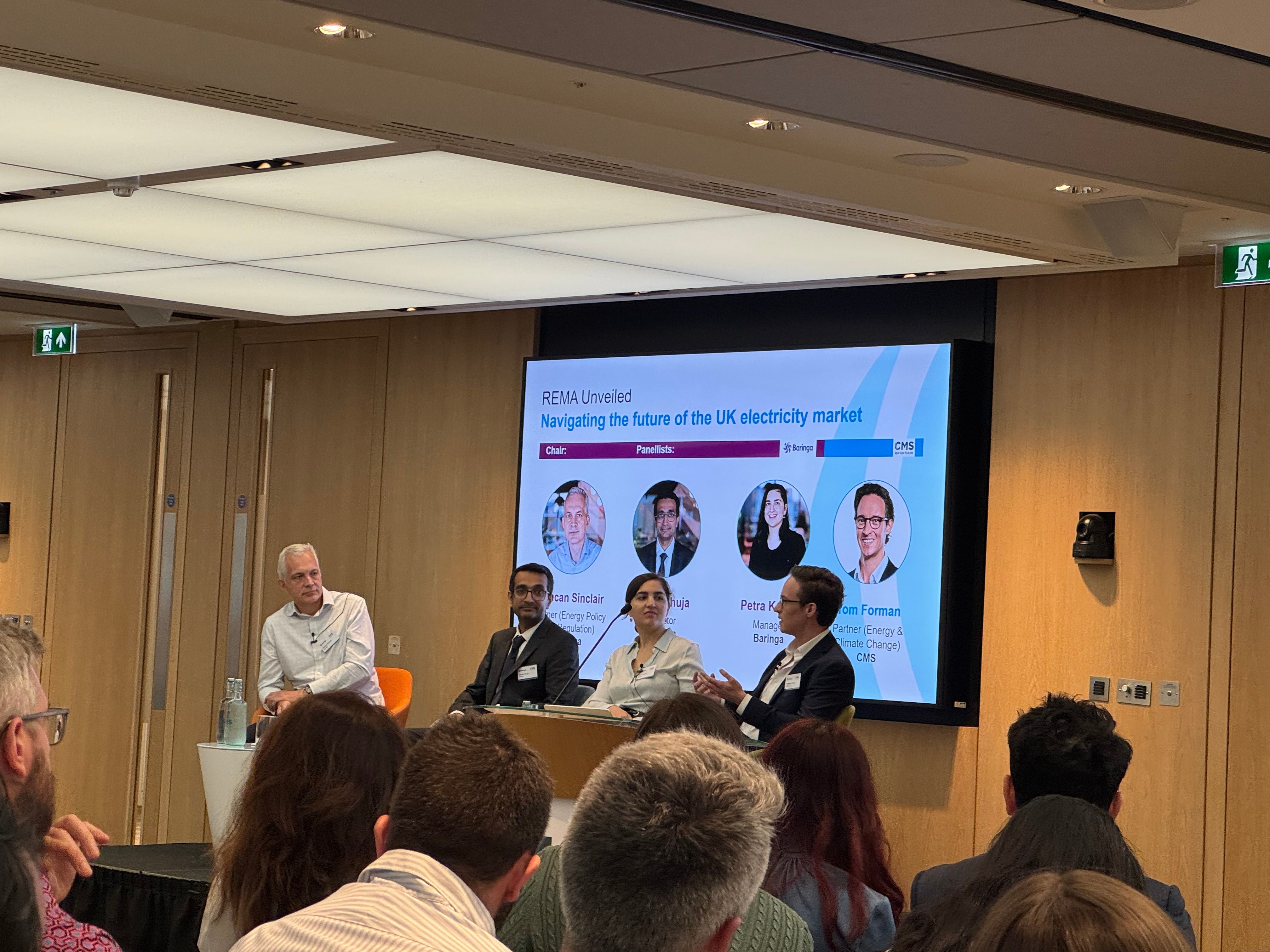
REMA Unveiled: dissecting the Government’s decision in favour of Reformed National Pricing
4 min read 28 August 2025
Earlier this year, we co-hosted a breakfast seminar with law firm CMS, bringing together representatives from across the sector to discuss the Government’s Review of Electricity Market Arrangements (REMA) and its wider implications for the Great Britain power market.
The Government confirmed its headline decision to retain a single, re-engineered national wholesale price rather than moving to zonal pricing, judging this to be the least disruptive means of strengthening investment signals while maintaining investor confidence. Centralised long-term system planning will therefore sit at the heart of the future Reformed National Pricing (RNP) market design to:
- determine what generation and storage are required to meet decarbonisation targets
- specify the associated network growth
- forecast demand, including “strategic demand” such as large data-centre clusters for which capacity may be explicitly reserved.
A recurring theme throughout the session was the need to improve locational investment signals. Ofgem’s high-level principles envisage materially greater predictability in Transmission Network Use of System (TNUoS) charges, with options ranging from fixing charges for the life of an asset to shifting a larger proportion of network costs into upfront connection charges. These reforms aim to de-risk new projects and align asset siting decisions with the central plan, while measures to mitigate the impact on existing generators remain under active consideration.
Operational efficiency is the second major pillar of the RNP package. An historic north–south generation/load imbalance, coupled with insufficient grid capacity, has driven constraint-management costs to unprecedented levels. The delivery plan therefore prioritises accelerated network investment - targeting a doubling of transmission capacity between 2030 and 2050 - alongside incremental reforms to balancing and settlement. Proposals include shorter settlement periods, enhanced market access for flexibility providers, and more granular, unit-based bidding to improve dispatch efficiency. Although cross-border balancing and potential re-integration with the EU internal energy market are long-term considerations, the immediate focus remains on domestic reforms capable of delivering near-term cost relief.
Stakeholders broadly welcomed the decision against zonal pricing, but cautioned that multiple concurrent reforms that comprise the RNP package - grid connection reforms, TNUoS review, retail market reform and consumer data governance - must be tightly coordinated by a strong design authority if the benefits of centralisation are to be realised.
The panel highlighted the delicate balance between coordination and competition: while the system blueprint will be centrally determined, competitive mechanisms will still be required to deliver infrastructure cost-effectively and to stimulate innovation on the consumer side. Retail suppliers in particular called for a clearer regulatory framework that enables them to leverage consumption data to unlock demand-side flexibility while safeguarding consumer protection.
REMA’s success will ultimately hinge on the Government’s ability to finalise an actionable strategic energy plan for RNP later this year, to clarify allocation of responsibilities between DESNZ, Ofgem and NESO, and to deliver a coherent legislative package by the 2026 and 2029 milestones. If executed effectively, the reforms promise to lower system costs, accelerate decarbonisation and create a more resilient, flexible electricity market.
To find out more abotu what REMA means for you, get in touch with Vikash Ahuja, Elise Ganendra or Petra Koulia.


Our Experts

Is digital and AI delivering what your business needs?
Digital and AI can solve your toughest challenges and elevate your business performance. But success isn’t always straightforward. Where can you unlock opportunity? And what does it take to set the foundation for lasting success?